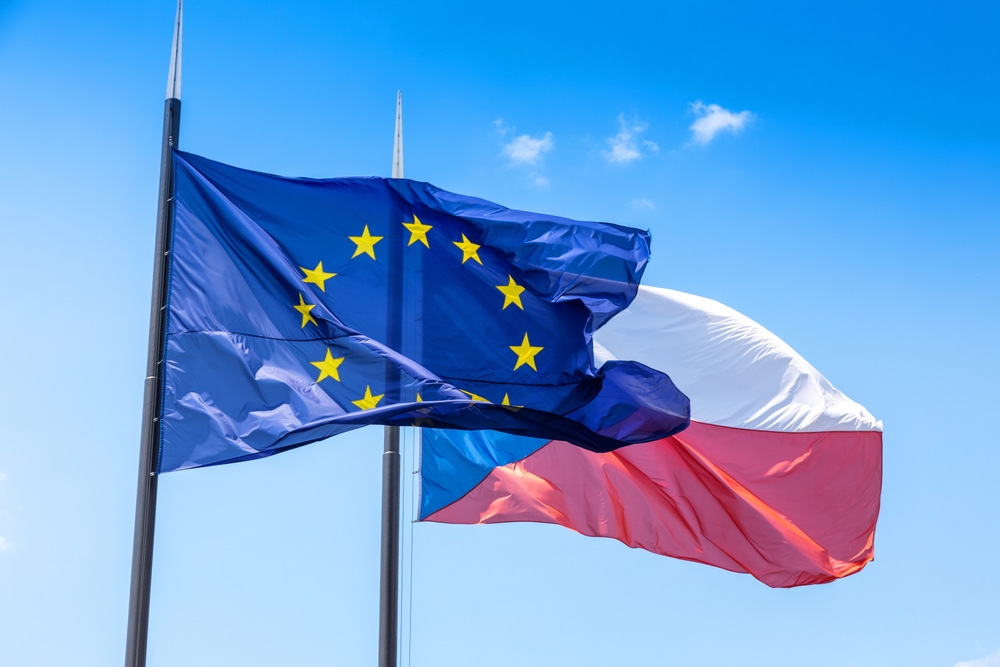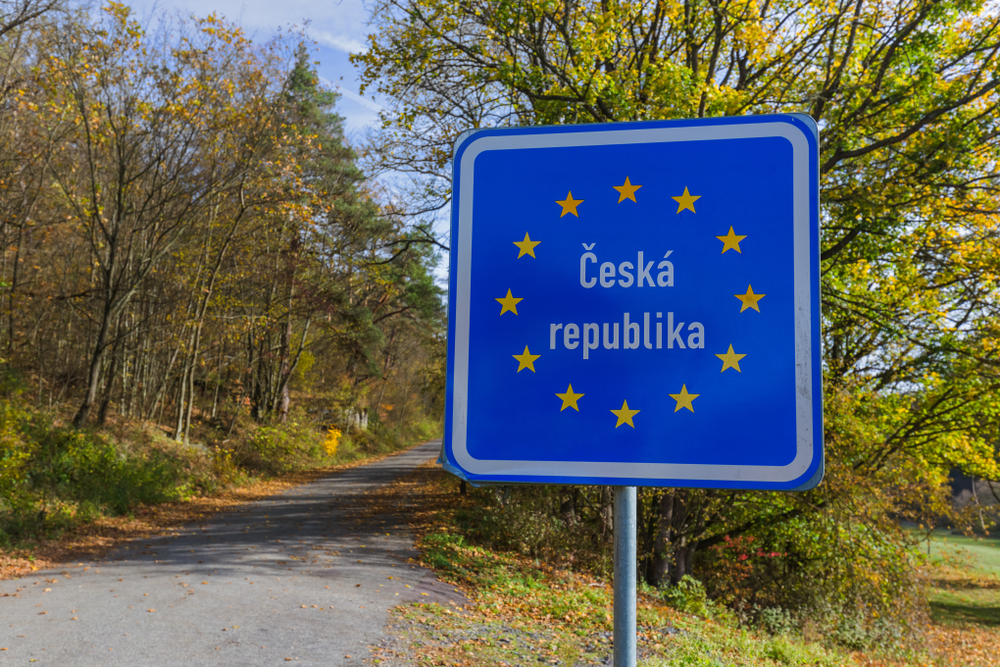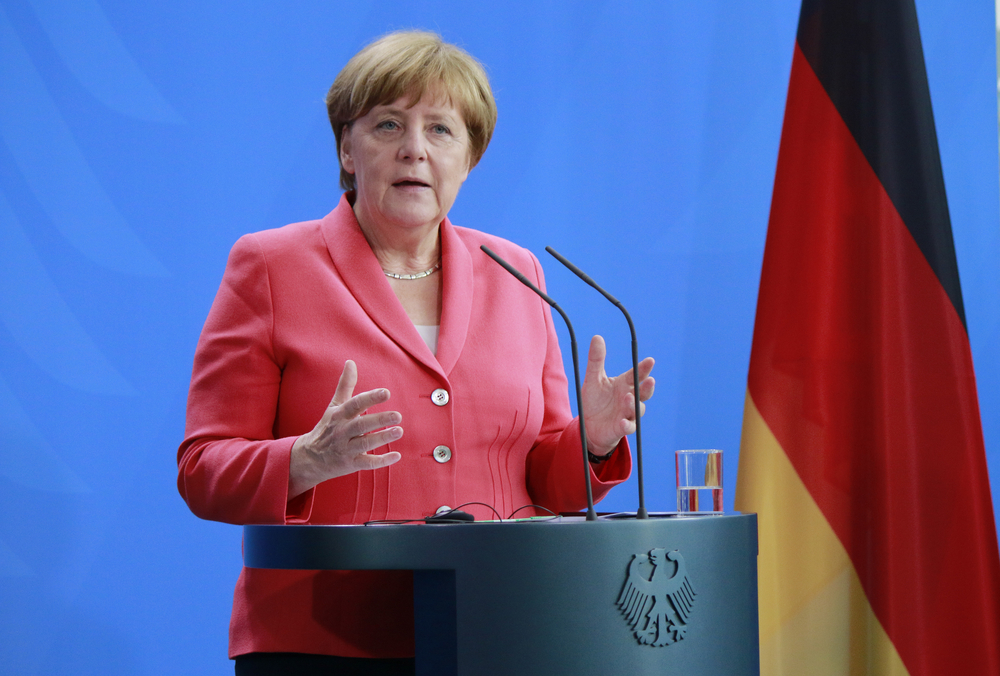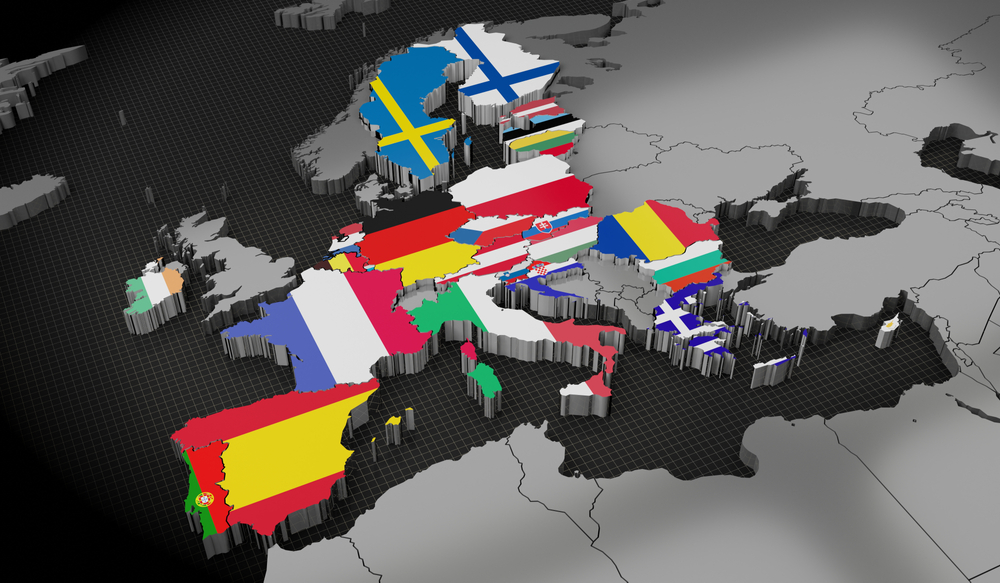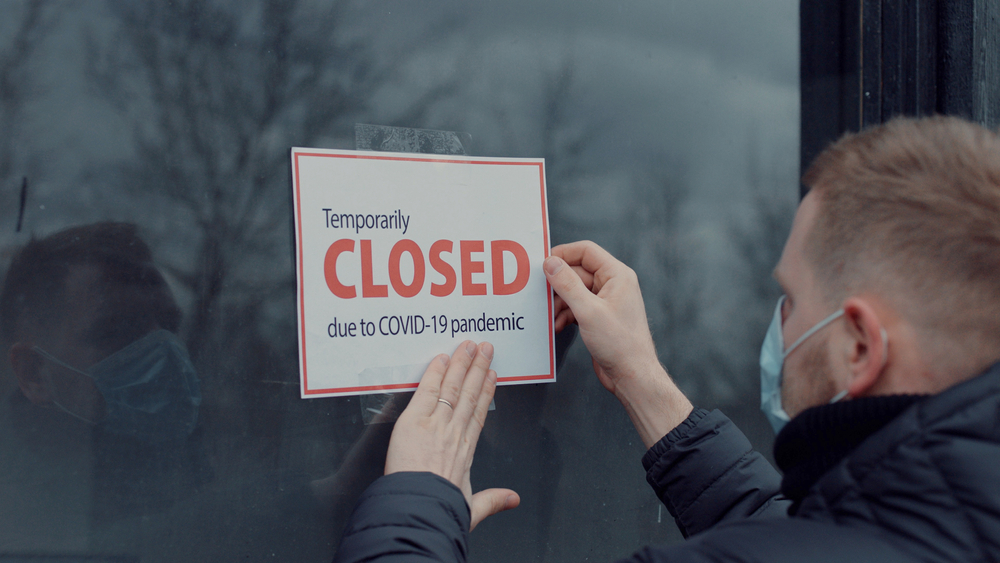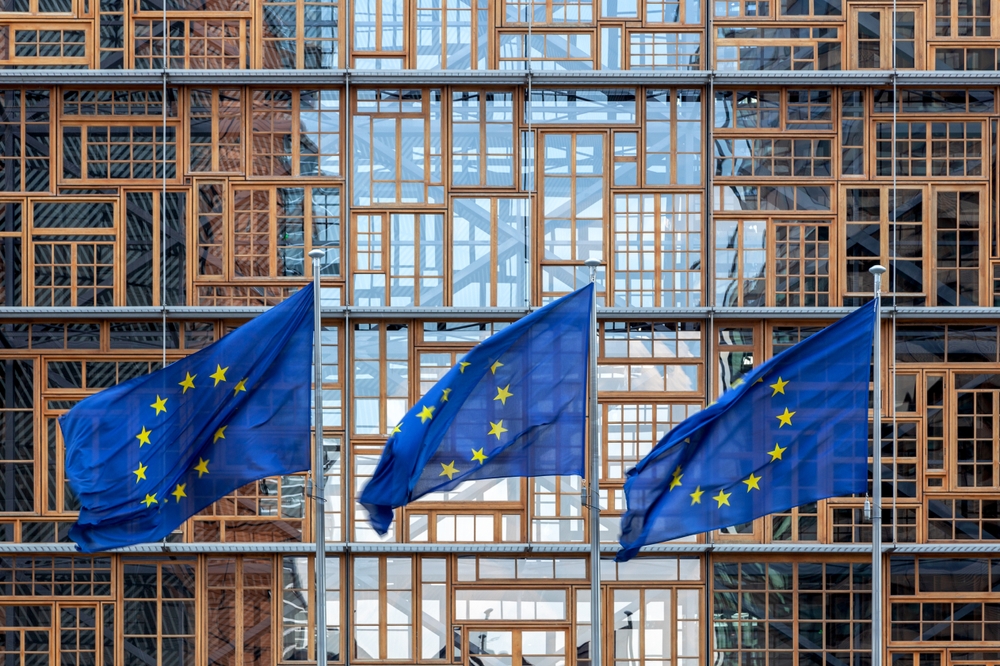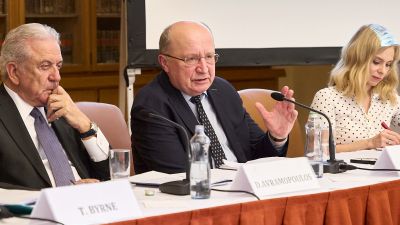“The European Union was in good shape economically at the time, and at the same time saw no geopolitical danger in enlargement.” That is how Professor Ivo Šlosarčík from the Department of European Studies at the Faculty of Social Sciences of Charles University describes EU enlargement that took place on 1 May 2004. Twenty years ago, 10 countries, including the Czech Republic, joined what up until then was the EU-15.
If we go back to 1996, when then Prime Minister Václav Klaus submitted the Czech Republic's application for membership of the European Union, what important issues did the Czech Republic have to iron between then and 2004 before actually joining the Union?
The “homework” that the Czech Republic had to catch up on is best summarised by the so-called Copenhagen criteria, formulated at the European Council by the 12 EU states in 1993. The first of the tasks is to have a functioning democratic regime, which the Czech Republic fulfilled; even the opposition treaty (a tolerance or some charge even a power-sharing pact signed by incoming PM, Miloš Zeman and Klaus in 1998 that successfully sidestepped their political opponents and aligned the opposition with the government – editor’s note), for example, was not interpreted as a threat to democracy. Other countries had greater problems in meeting EU norms, such as Slovakia because of the government of Vladimir Mečiar.
The other criteria were economic. They said that the Czech Republic must have a market economy and at the same time be able to withstand competitive pressures within the union. The association regime, which gradually broke down barriers to trade in industrial goods between the Czech Republic and the EU from the early 1990s, also contributed significantly to this, allowing Czech firms to slowly get used to EU competition and to catch up with EU standards. It was a kind of easing into the colder economic water rather than jumping in headfirst on 1 May 2004.
Most of the attention of EU and Czech officials was taken up by the so-called acquis criterion, where the Czech Republic had to transpose into its legislation and administrative practice European standards that are set out in European law - from agriculture to consumer protection to the environment. Here, the Czech Republic was in an asymmetrical position because EU standards were created without its participation and did not necessarily reflect Czech priorities. But we were the ones joining the club, so we had to adapt to its rules.
The Czech administration also had to prepare - not only technically and expertly, but also mentally - for the fact that from 1 May 2004 we would no longer be just adopters of European standards, but would have to take an active part in their formulation. How to adapt the Czech state administration to be able to actively promote Czech interests after EU accession was perhaps the biggest challenge of the whole accession process. The settling in of the new procedures took several years and is still slowly catching up today.
The last condition, which is not mentioned in the Copenhagen criteria but was terribly important, is to be lucky, because we had to fit into a time window in the enlargement process when the EU countries and their publics were relatively supportive of enlargement. That is to say, when, from their point of view, it looked like enlargement would be easy, safe and low-cost.
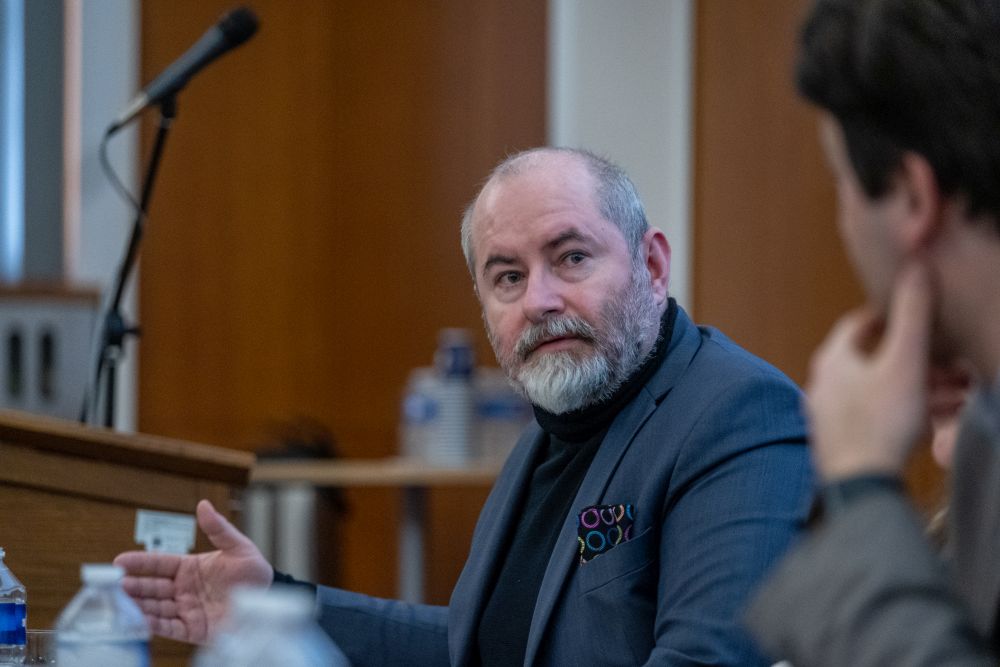
Professor Ivo Slosarčík, co-founder of Europeum Institute for European Policy.
It wasn't a window, but I daresay it was more like a whole door. What made 2004 so special that the European 15 could expand by 10 countries at once? Günter Verheugen, the then EU Enlargement Commissioner, said in an interview that if it hadn't happened then, there might never have been such an opportunity again...
At the time, the EU saw itself in good shape economically and at the same time did not see enlargement as a major geopolitical danger. The economic difficulties of the 1990s had already been overcome. The fact that Germany was in good economic shape and was no longer the “sick man of Europe” as had been called a few years earlier also played a role. At the same time, there were no other geopolitical challenges, Russia was weak at the time and was not perceived as an important actor with the potential to have a say in EU enlargement.
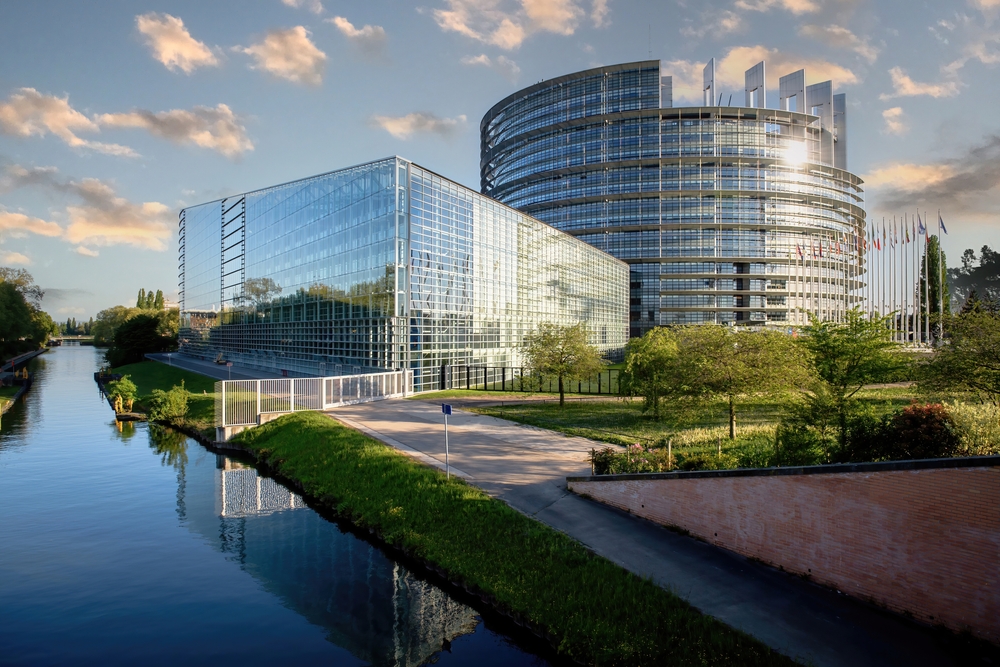
The seat of the European Parliament in Strasbourg.
The decision to enlarge was already taken in 2002 at the Copenhagen summit, only to be followed by the consent of the European Parliament, the formal signing of the enlargement treaty, referenda in future EU states and the actual entry of the 10 new countries. But the key negotiations were in the second half of 2002, and it should be remembered that it was also at that time that negotiations on changes to the design of the EU, strengthening the state or quasi-state elements of European integration, began to take off. The outcome was the Treaty establishing a Constitution for Europe, but it never entered into force because it was rejected in a referendum by voters in some of the old member states, France and the Netherlands. At the same time, fatigue with EU expansion and scepticism about further waves of enlargement played at least a partial role in the decision of French and Dutch voters.
Another five or ten years later, after the eurozone crisis, enlargement would have happened either not at all or only by a few countries.
What has the increase of so many new members done to the European project?
It was most evident in the change in the functioning of the institutions. Suddenly you have not 15, but 25, then 27 and finally 28 states around one table, and this was mainly something that the European Council or the Council of Ministers had to deal with; it also had an impact on the functioning of the European Parliament and the European Commission. The formal rules of the EU institutions changed, but so did the atmosphere and informal communication during the negotiations, with politicians and experts from the new EU states only gradually building the respect or social capital needed to advance their interests or build voting coalitions.
For example, disputes between the Polish government of Jaroslaw Kaczynski and the German government of Angela Merkel (pictured left) escalated rapidly. The rhetoric used in the Polish-German spat would be hard to imagine in communications between, for example, Germany and France or Sweden. However, the conflict between the new and old member states was then temporarily covered up by the eurozone crisis, where the problem states were located mainly on the southern or south-western periphery of the EU, mostly among the old EU countries (Italy, Portugal, Greece, Spain, Ireland and, among the new states, Cyprus).
The next big change came a decade or so after enlargement, when the new member states started to show more self-confidence. The old member states did not react favourably to the different priorities and growing assertiveness of the newcomers (who no longer considered themselves newcomers) and often interpreted it as arrogance or a lack of understanding of basic European principles.
The tension between the two groups of states then came to the fore during the 2015 migration crisis. The fact that a large part of the new member states did not agree with its solution, in the form of a plan for the relocation of asylum seekers regulated by EU legislation, was not seen by the old EU countries as a legitimate step in EU political decision-making, but as a revolt that did not understand the basic rules of EU functioning.
After an optimistic period at the beginning of the new century, the EU has had to go through a series of tests - the aforementioned eurozone and migration crisis, Brexit, the pandemic, Russian aggression in Ukraine. What shape is the EU in today?
It is said that the instinctive response of EU institutions to any crisis is to try to use it to strengthen European integration. Thus, the eurozone crisis of 2010-2012 gave rise to a new mechanism for economic governance and control of the budgetary policies of EU countries. The migration crisis led to greater European activity in migration policy, but this was resisted by a significant number of EU countries, and therefore the Europeanisation of migration and asylum policy did relatively little to strengthen the immediate situation. For example, the management of the wave of refugees from Ukraine was essentially outside 'Brussels' and at the discretion of individual countries.
Surprisingly, the 2020 pandemic has not led to such a strong strengthening of the EU's role in public health protection, but again in the budgetary area, with the creation of the Next Generation EU Fund, with a funding method not previously accepted by EU countries.
During the Russian aggression, the EU has shown surprising flexibility in finding solutions to help Ukraine in 2022-2024. But we don't yet know if this short-term EU response will translate into more permanent EU policies or into empowerment of new EU countries within the EU. We will see in the autumn, when the new European Commission is formed (and the posts of European Council President or EU High Representative for Foreign Policy are also filled), if there will be new strong portfolios responding to the crisis, who will be put in charge of them, and how the new policy priorities will be able to translate into real military capacity in armaments or industry.
Let me now quote your colleague from the Faculty of Social Sciences, Michael Romancov, who writes in his monograph, Displaced Europe, that “While the EU as a whole has been able to react surprisingly quickly and meaningfully to Russian aggression, the sanctions imposed are effective and will become increasingly evident as time passes. However, perceptions of the viability and irreplaceability of the path of dialogue continue to persist in the EU. However, this is a blind and extremely dangerous path in the current circumstances.” The monograph was published in 2020 and Michael Romancov commented on the EU's sanctions policy towards Russia in response to Russia's annexation of Crimea and occupation of the eastern part of Ukraine. So has the EU learned its lesson since then, or is dialogue still its main weapon?
The EU has the advantage and disadvantage of being able to speak with more voices in foreign policy. The President of the European Council, the President of the European Commission can say one thing and key EU politicians can say another. And this is confusing because then it may not be clear what the EU really wants, but it also gives the EU more flexibility in what it does and negotiates in foreign policy.
In April 2024, there is extreme scepticism at the EU level about whether it is possible to negotiate with Russia, given that they see no interest on the Russian side in a genuine dialogue to resolve the Russia-Ukraine conflict. The EU institutions see Russian references to negotiations purely as a tactic to break or disrupt the flow of decision-making within the EU.
If there were to be a shift of opinion on the Russian and Ukrainian sides, then of course the EU would be very happy to host a summit or other platform to bring the peace process under its umbrella. But the question is whether the EU has the geopolitical strength to do so and whether a possible peace conference would be more likely to take place somewhere in Ankara, Istanbul or the United States.
So is negotiation and diplomacy still the main weapon for the EU?
No, its main weapon is its economy and the quality of public administration in its member states. The ability to produce sophisticated products is absolutely essential for the Euro-Atlantic area. Therefore, one of the priorities of the Czech EU Presidency was also the resilience of European industry. We have realised that we need to combine economic advantage and other interests, such as European security, in regulation, which implies a new way of thinking and regulating at EU level, for example, with regard to selected raw materials, chips or medicines.
We should also not underestimate the attractiveness of the quality of public administration and the fact that EU countries generally treat their citizens decently and respect their dignity. The fact that the ordinary citizen has the chance to seek justice in disputes with more powerful economic actors or with the state is very powerful and is part of the EU's 'soft power'.
Is the EU now in a good position to accept more members?
Not in two to three years' time, and I would not venture a guess in the longer term, given the changes that have taken place internally and externally over the last decade. In 2014, no one would have guessed that ten years later Ukraine would be a candidate state and accession negotiations would officially open.
Which individual state is closest to accession now?
If I absolutely had to guess, I would probably point to one of the Western Balkan states, perhaps North Macedonia. But, paradoxically, Moldova could also be interesting, and Romania, for example, would be very keen to see inside the EU. By contrast, the Western Balkan states do not have such a big ally inside the Union.
In Ukraine, of course, the war must first end before EU accession can even be considered. Nevertheless, is it realistic for Ukraine to join the EU today, or is the EU's friendliness towards Ukraine more of a symbolic support for the country?
It is conceivable, but at the price of a major rewriting of regulatory rules within the EU, from agriculture to heavy industry, and at the same time of acceptance by countries for which Ukraine's entry is geopolitically advantageous but economically would be a major challenge, such as Poland, Romania or the Czech Republic. We would, of course, like to see Ukraine in, but as a medium-rich EU country we would suddenly move into the category of above-average EU countries with all the implications for cohesion policy and competitiveness within the EU.
Also, the countries that support Ukraine but it is not their key geopolitical priority, i.e. mainly the countries from the southern and western periphery of the EU, must opt for a possible major EU enlargement.
Hungary will hold the EU presidency in the second half of the year. Given the Eurosceptic stance of Prime Minister Viktor Orbán and his government, can we expect any tensions or moments of crisis among the EU27 ?
Everyone is looking at the Hungarian presidency with a bit of tension. However, even countries that are sceptical about the EU have managed the presidency system. The presidency is not a dictatorship. Rather, it is to be expected that Hungarians will want to write their specific interests into European legislation. However, the Hungarian presidency will be at the very beginning of a new five-year decision-making cycle, so there will be a minimum of legislative outputs in the second half of 2024 (the EU-wide elections for the European Parliament will take place in June and the EU institutions will be formed in the following months on the basis of their results, which will slow down the legislative process - editor’s note).
What I see as a bigger problem in April 2024 is the internal tensions that Budapest is now experiencing. For this reason, it is possible that the Hungarian government will not have time for European integration because it will be dealing with a domestic political crisis. Moreover, the main role of the presidency is to mediate and help forge compromises and voting coalitions in the Council, and here Hungary's lack of reputational capital may play a role.
What are the current biggest challenges for the EU?
I can think of two. The first is the EU's (in)ability to respond to the weakening of liberalisation in international trade. The European mental and regulatory design is set more on the gradual removal of barriers to global trade and on the recognition of the mutual benefits of economic cooperation and respect for internationally agreed rules. However, the experience of recent years demonstrates the limitations of a purely economic approach and the ease with which global economic flows can become blocked (whether by missiles flying from Yemen onto merchant ships in the Red Sea or by the freezing of world trade due to the Covid pandemic).
The second challenge is that the EU has so far always built its legitimacy on delivering prosperity. Although European regulation is sometimes intrusive and unpopular, it has already had the medium-term effect of raising living standards in all member states. Now, however, a counter-narrative is emerging that says that European initiatives, such as the Green Deal, will in turn lead to reduced economic prosperity and a lower standard of living in EU countries. The union does not know how to work with this counter-narrative, whether to break it down (saying it is not true) or to point to other sources of its legitimacy and develop them.
| Professor Ivo Šlosarčík |
| Ivo Šlosarčík is a graduate of the Faculty of Law of the Charles University and the Central European University in Budapest. He works at the Institute of International Studies, Faculty of Social Sciences, Charles University. He is a co-founder of the EUROPEUM Institute for European Policy. His research focuses on the Europeanisation of the executive and judiciary in EU countries, European Union law and institutions, comparative constitutional law and politics in the Republic of Ireland. He is the author of monographs charting the relationship between law and politics in the EU, new forms of EU law enforcement and the Europeanisation of selected Czech ministries. From 2017 to 2020, he led a Jean Monnet project at the Faculty of Social Sciences at CU on changing approaches to European integration in Central Europe. |


